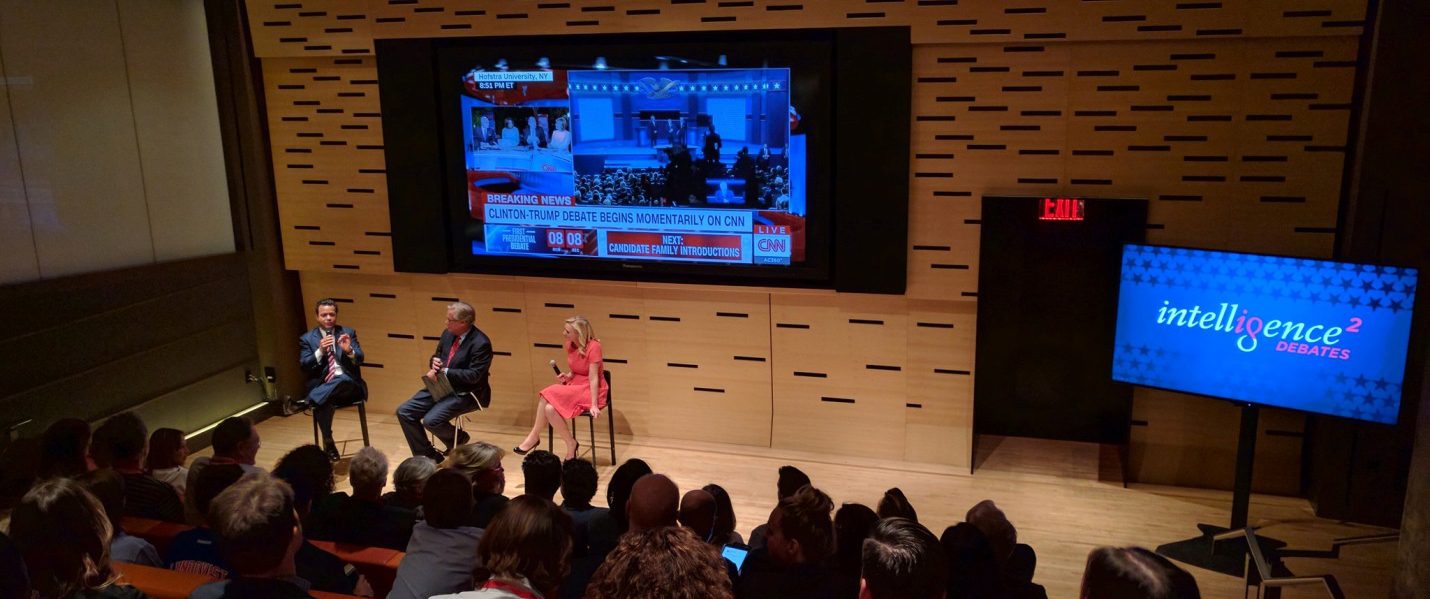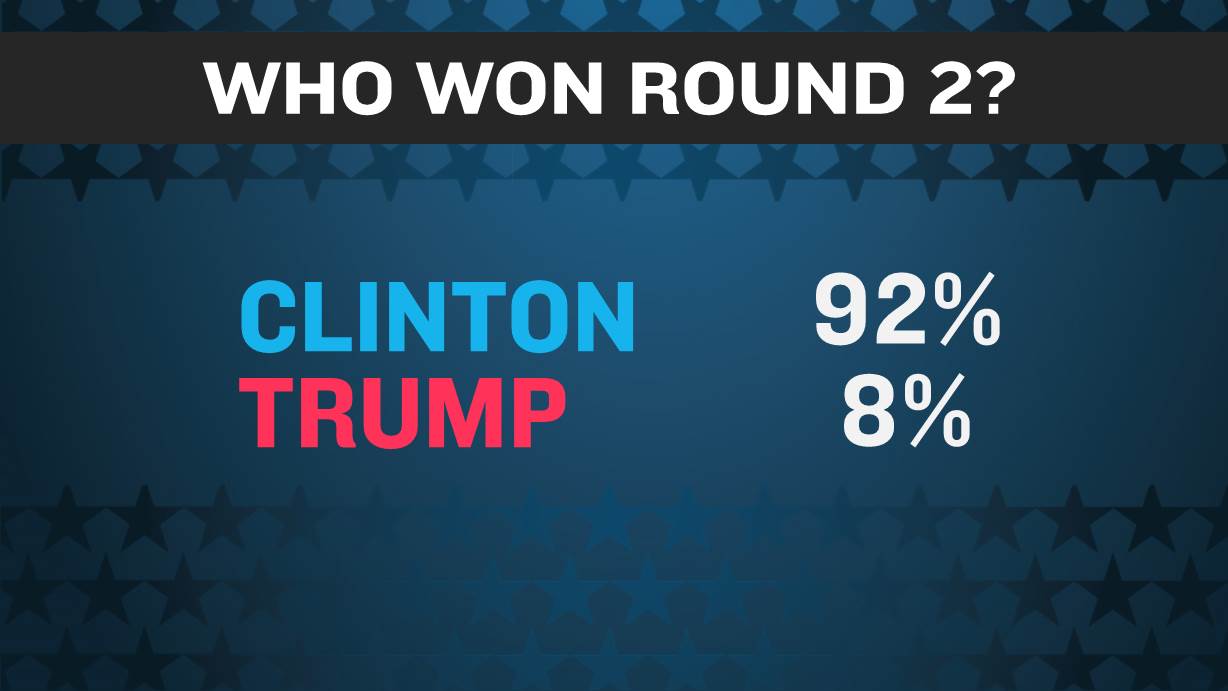How do you tell who wins a presidential debate? There is no motion to argue for or against, no time for policy nuance or depth, and very often no scientific basis at all behind the polls that purport to declare a winner. In such a situation, can you really distinguish between a vote for the winner of a particular debate and a vote for the candidate in general?
That’s why we decided to bring our Oxford-style debate voting to the presidential debate. An intimate group of enthusiastic debate supporters gathered together at the Film Society at Lincoln Center to watch the event. We asked our voters not just one question, but several, and the results show that what we tend to treat as a simple binary contest is often anything but.
Though the majority of our audience had already decided to vote for Hillary Clinton, that didn’t mean they all had confidence in her ability to win the debate. With such unusual debaters, it was clear that this was anyone’s game.


Our audience was 57% Democrat, 7% Republican, 7% Libertarian and 29% Independent. Ages ranged from a few guests under 18 to several above the age of 65, and our gender split was 48% male, 52% female.
That diversity was also reflected in our opening panel. Joining Open to Debate moderator John Donvan was political power couple Margaret Hoover (CNN political contributor) and John Avlon (editor-in-chief of the Daily Beast). Hoover, the conservative, and Avlon, the liberal, have been dubbed “the new face of bipartisanship.”

Our three panelists were eager to see what the debaters would bring to the table that night. Avlon characterized his prediction of Trump’s behavior using a favorite quote of his by actor Harvey Keitel, who also happened to be in the audience: “Just because you are a character, doesn’t mean you have character.” Donvan complimented our Republican representative Hoover as helping “cut through noise” in her reasoned criticism of her party’s chosen candidate.
And how did they find the debate? Donvan, who has been outspoken in his belief that the presidential debates are not real debates, claimed that the event was “as a debate, better than any since Kennedy-Nixon.” Approving of multiple instances where the candidates addressed one another directly, he praised Lester Holt’s moderating and “well-crafted questions.” For more from John Donvan on the presidential debate, watch this interview with WNET’s MetroFocus.
The debate was of course accompanied by a lively conversation on Twitter, as our guests at the party and followers across the country argued over high points and missteps from both candidates.
@MaxBoot @OpentoDebateOrg Every commentator told us the Carter beat Reagan. They laughed at Reagan.
— Benjamin (@supersteak) September 27, 2016
Wouldn’t this be a lot more interesting if it were Oxford Style debating @OpentoDebateOrg
— Zach Babo (@ZachBabo) September 27, 2016
The debate was divided into three rounds, and we asked our audience to vote on who won each of the rounds as well as the overall winner of the debate. The starkest results came from these early votes:


And in the end, who won the debate? In true Open to Debate style, victory went to the debater whose numbers moved up the most in percentage points from the first vote to the second, according to the live audience.

That’s a 44% increase in votes for Hillary Clinton. Donald Trump lost 21% of our live audience vote, making Clinton the winner. But did the debate sway anyone in our audience to vote for another candidate?

Apparently not. Do you think the presidential debates can actually change voters’ minds on which candidate they’re going to vote for in November? Let us know in the comments.
And remember, just like in any of our debates, our online audience can vote too. Go to our presidential debate page and vote twice—who you thought was going to win the debate before it started and whether you were proven right. Cast your vote now.
